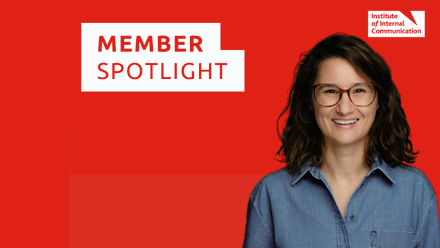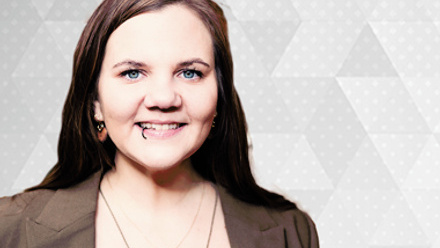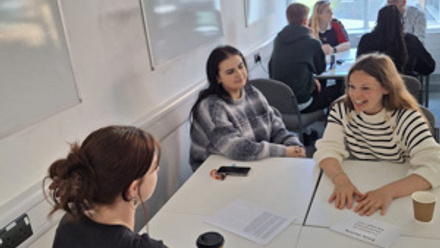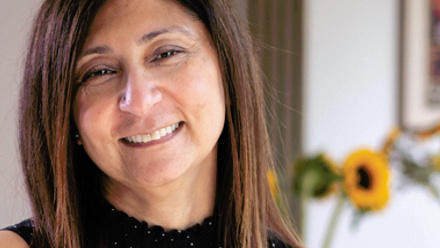How has the role of internal communication evolved since you started your career, and what key trends do you believe will shape its future?
I’ve been doing this a long time. When I started at NatWest comms was still in its infancy. Although I had no experience, I was given responsibility for the Bank’s video output. This included production of a regular magazine programme, which was a lot of fun.
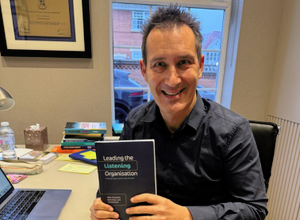
One memory that was less fun was that one of the things I had to look after soon after starting was changing the video formats we used from U-Matic (one for the kids) to VHS. With something like 2,500 locations that was a big, time-consuming admin project. Noone had conceived streaming or downloading at that point!
I took my first steps into listening at the Bank, though didn’t realise it at the time. I managed our main feedback channel, called simply “The Hotline’. People called a number, left a message on the answerphone and we promised to get them a reply within 48 hours. It became quite popular, so much so, that one time the Union instructed their members to leave a message complaining about the recently announced pay increases. We received over 1,500 calls in less than 24 hours and needed to work over a weekend to keep on top of it.
In those innocent days we were pathfinding and did things for the first time. People typically responded positively because they had never engaged with these types of communications before.
Things are very different now. We’ve been through so many transformations, introduced all the different technologies, promised too often that the next thing would be the big thing to make everything ok. People are also more bored with being talked at or asked their opinion on things only for nothing to happen.
I use an analogy to describe what I see now, that we’ve won the battle in that I don’t think we have to make the case for having internal comms, but we’re losing the war in that with many businesses budgets squeezed and resources stretched, IC professionals are struggling to keep their heads above water with the amount of content creation and channel management their stakeholders are demanding of them.
That said, I believe there is a real opportunity for internal comms to be more successful in the coming years. We need to demonstrate the real value we bring to an organisation. This means being clear about how we help the business succeed. Just falling back on trying to raise engagement rates won’t cut it – we need to demonstrate how internal communications can influence the key levers in a business, for example, directly improving productivity, mitigating risk or helping leaders make better business decisions.
We do this through creating the space and time for people to have the conversations that help them build their understanding of where the business is going and then listening (and responding) to their questions, concerns and ideas.
If we do this then we can position ourselves as true business partners. I believe this Is a huge opportunity for us.
Why did you choose to pursue a Fellowship?
Through much of my career I have wanted to support fellow IC professionals and give back.
When I was involved directly with IABC as UK Chapter President for two years (2018-2020) I got to see how much good work IoIC were doing. Since then, I’ve always respected and stayed close to IoIC, for example attending and presenting at the last two IoIC Festivals.
I see the great job IoIC do for the profession and I believe the Fellowship will help me do more to support this whether through mentoring, advocating for the profession or elsewhere.
As an advocate for internal communication, what strategies have you found most effective in demonstrating its impact on organisational performance and employee engagement?
No surprise perhaps but I’m going to talk about listening.
What my work on listening has demonstrated is that there are multiple positive impacts for a business that listens to its people.
When people feel listened to, and by listened to I mean that the organisation hear and then respond appropriately, then you will build both trust and engagement.
However, the benefits from listening are far more than just engagement. Leaders who listen make better business decisions. When an organisation listens, they mitigate risk and we can see from recent high-profile examples that when they wilfully don’t listen, as in the case of the Post Office in the UK or Boeing in the US, that they can suffer huge financial and reputational damage.
Listening to different voices is essential for organisations who value innovation (that includes just about everyone) and during times of major change, listening to the questions, concerns and suggestions of your people is a huge part of delivering change effectively.
What has been the most significant challenge in elevating the importance of internal communication within an organisation, and how did you successfully navigate or overcome that challenge?
One of the most important things for an internal communicator is to establish the right relationships early with their senior stakeholders. You build relationships based on trust and shared goals though must never forget that you also need to keep delivering, every time.
One way to do this is to demonstrate from your listening that you have a great understanding of what your employees are thinking, you know how and why employees respond to what the centre asks of them and you can lay out clearly how to execute successfully to bring people with you.
IoIC’s #IChoseIC campaign aims to position internal communication as a career of choice. What advice would you give to someone just entering the profession to help them succeed and grow?
My advice would be as follows:
- Make sure you take every opportunity to get to know your audience(s). Go out of your way to meet, chat and listen to the people you are communicating with.
- Network externally, understand what excellence looks like, support organisations like IoIC and get a mentor to help stretch yourself
- Internal communications can be hugely rewarding. You will find yourself doing some amazing projects, working with wonderful people. You are one of the few people who gets a full 360-degree view of a business and you can influence decisions. So, take every opportunity to get involved and keep demonstrating the real business value that you bring.
Learn more about IoIC Fellowship.


